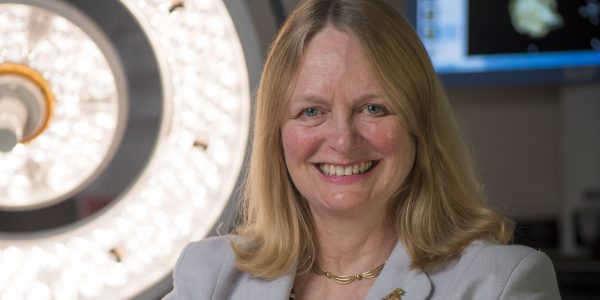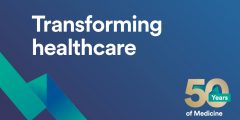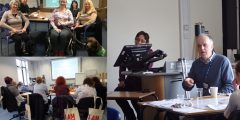50 at 50: Dean’s Closing Blog
March 11, 2022
As our celebrations for the 50th Anniversary of Medicine at the University of Nottingham comes to a close, it’s incredible to think how much has changed since we started our 50th year towards the end of 2020. We’ve faced the many ups and downs of a global pandemic, and now we’re witness to the horror of …
50 at 50: Care Leavers and Higher Education
September 24, 2021
In my three years as a medical student at the University of Nottingham, I have had the privilege of working across the University with one overriding focus. This focus is improving the visibility and accessibility of care leavers, in medicine, and in higher education (HE) more widely. In other words, widening participation in higher education. …
50 at 50: Transforming healthcare: High explosive treatment for treatment of stroke
July 9, 2021
I have been in Nottingham since 1998 having previously been a Clinical Lecturer then Senior Lecturer in South-West then South-East London. My research and clinical interest in nitric oxide, a gas comprising a molecule of just one oxygen and nitrogen atom, started when working for my MD postgraduate research degree at the “University of Beckenham”, …
50 at 50: Coping with Illness in the Digital Era: The Role of Online Peer Support
April 16, 2021
It was back in 2003 when my academic career took an unexpected turn. Everything was ticking along very nicely when I started to notice some odd symptoms. Like many people, I thought nothing of it and continued about my day-to-day business. However, things quickly deteriorated and soon I had become really very ill. Whilst those …
50 at 50: Reflections on my time at Nottingham Medical School: Achieving excellence in primary care and applied health research
March 29, 2021
My first memory of Nottingham Medical School was attending for interview for a medical school place in 1980. To my mind Nottingham had the most exciting progressive course in the country, and I particularly liked the emphasis on medicine in the community. At interview Professor Richard Madeley asked what I would do if I had …
50 at 50: Graduate Entry Medicine, A Different Kind of Freedom
March 19, 2021
Medicine was almost a spur of the moment choice for me, I don’t quite want to say an epiphany. I hadn’t given it any thought at all until I virtually stumbled across the concept of Graduate Entry Medicine during a rather drawn out period of soul- and job searching in my late twenties. I still …
50 at 50: Women in Medicine – Pain Inequality: A Healthcare Bias
March 12, 2021
Although we are fortunate in the UK to be protected by the NHS, we unfortunately still are plagued with implicit biases which can be detrimental to the beneficence of patients. Healthcare inequality is a broad term used to call attention to the way medicine is unjustly researched, practised, taught and highlighted to the public. The term ‘bias’ is used to refer implicit stereotypes, prejudices and raises …
50 at 50: StreetDoctors
March 5, 2021
Youth violence is a serious problem in many cities across our nation. Between September 2019 and September 2020, there were 47,119 offences involving knives or sharp objects recorded by the police in England and Wales (1). These offences have been rising since 2014 and although in recent years the rate of increase has slowed, even …
50 at 50: No research about me without me! Welcoming the patient and public voice to research
February 26, 2021
A lot has happened in healthcare and research over the last 50 years since the University of Nottingham Medical School was born. Not just in breakthrough treatments and diagnostics, blockbuster drug development and in tackling our first pandemic since 1918; but also in opening up medicine and healthcare to include the views and experiences of …
50 at 50: PINCER – transforming healthcare
February 19, 2021
Medication errors in general practice are an important and expensive preventable cause of patient safety incidents associated with morbidity, hospitalisations and deaths. PINCER is a pharmacist-led, IT-based intervention to reduce clinically important medication errors in primary care and was developed and tested by researchers at the Universities of Manchester and Nottingham, led by Prof Tony Avery and Dr …










